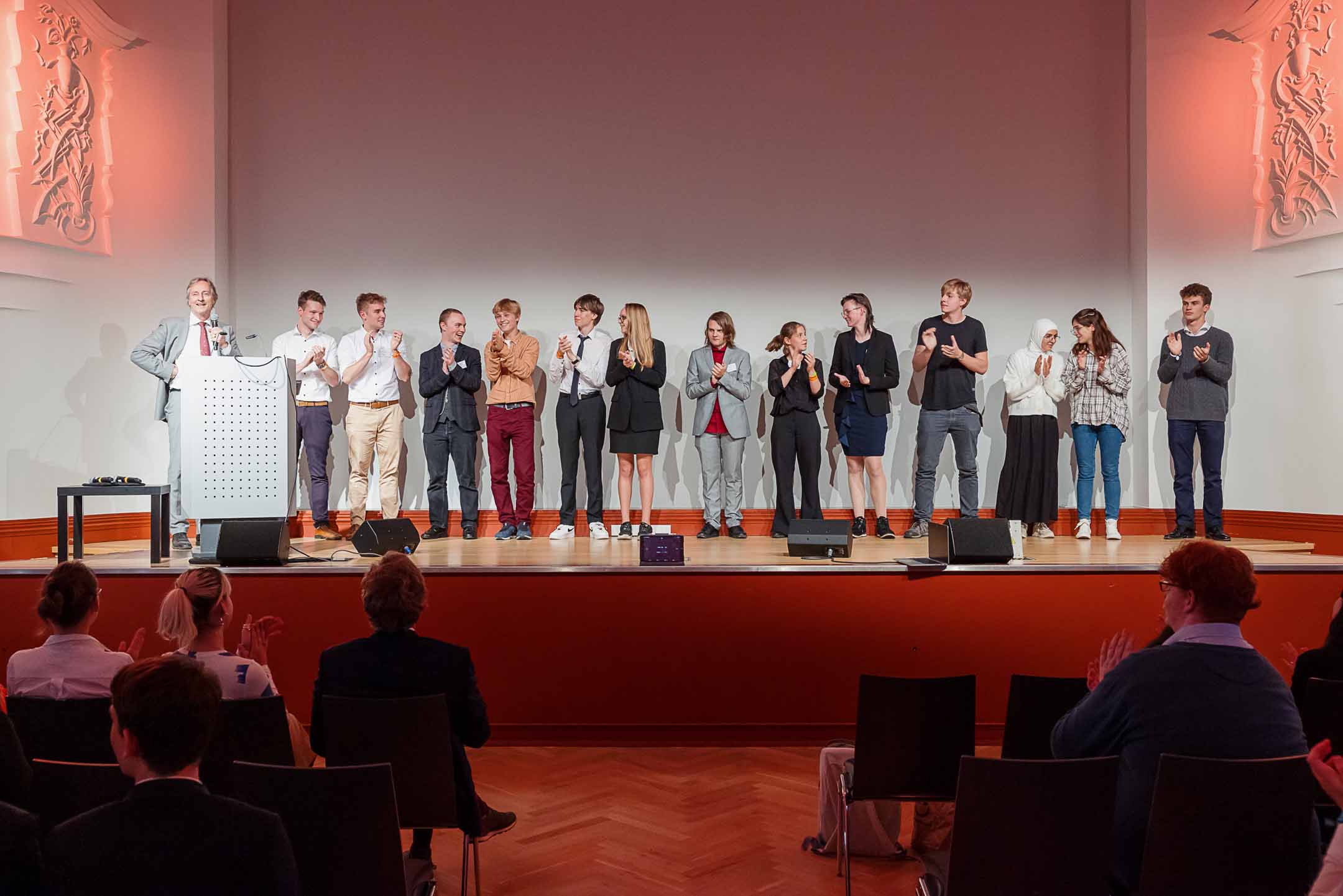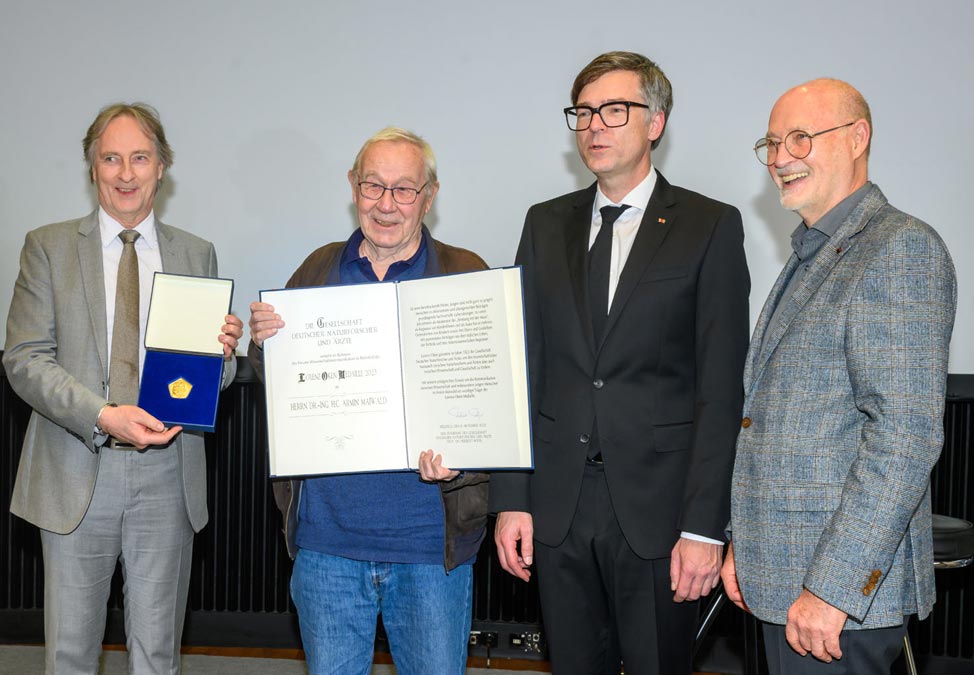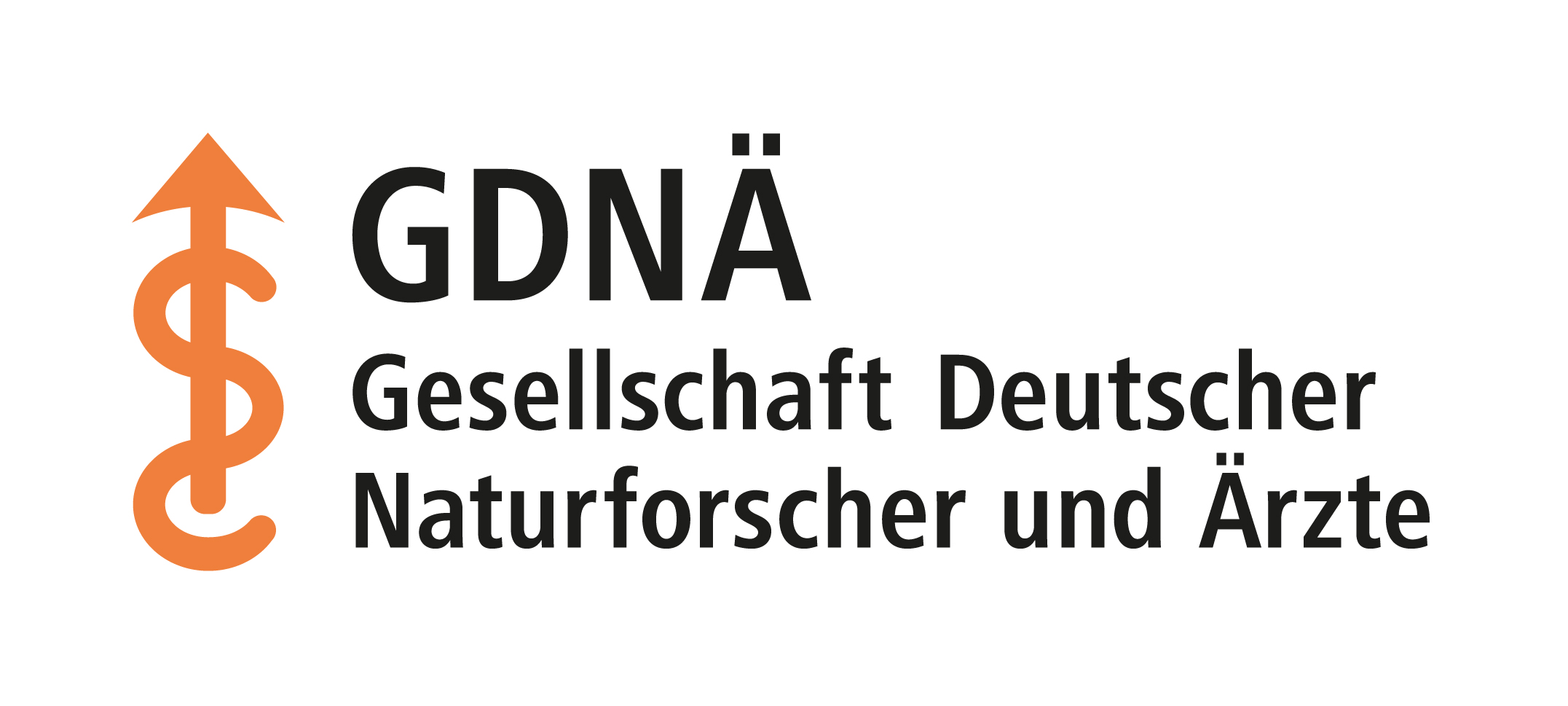“In Potsdam, we present the Young GDNÄ”
GDNÄ President Heribert Hofer on highlights of the 2024 Assembly, German as the conference language and his interim period after one year in office.
Professor Hofer, the 133rd GDNÄ Assembly will take place in Potsdam in September 2024. There are still nine months to go until then. Are you and your team on schedule?
Yes, the preparations are well advanced. We have a clear idea of the scientific programme, the event rooms have been booked and the supporting programme has largely been finalised. All GDNÄ members will receive more details in the annual letter at the beginning of January.
There are still three weeks to go until then. Can you give us a few insights in advance?
It will be a very interdisciplinary conference, even more so than is usual at GDNÄ meetings. For example, we will show how important artificial intelligence already is for different scientific fields and how it is used. Some of the presentations will make you wonder whether this is biology or physics – the methods are now so interlinked. Interdisciplinary thinking and working is becoming increasingly important in almost all subjects, and this trend naturally plays into our hands. The focus also corresponds to the interest of our members, as we know from conversations and letters.
The meeting is entitled “Science for our lives of tomorrow”. Many people are currently not very optimistic about the future. Can science brighten up the picture?
Yes, it can and it has often done so in the past. Just think of the coronavirus vaccines, which put an end to the pandemic relatively quickly. As in this case, research results have often been used for the benefit of mankind. But, as we all know, they can also cause harm. My concern is therefore a responsible science that has both potentials in mind. For example, in the field of green genetic engineering, where new genomic tools are used to develop plants. We will be discussing the opportunities and risks in detail in Potsdam. We will also be discussing new trends in ChatGPT and the like, i.e. generative language models and what they mean for the world of tomorrow.
This topic should be of particular interest to the students present in Potsdam. What role will they play at the 2024 Assembly?
Their contributions are very important for us. Similar to the 2022 anniversary conference in Leipzig, the young people will be discussing with scientists on the podium. We are organising two workshops in advance so that they can familiarise themselves with the content. In Potsdam, not only selected students from the region will take part, but also former participants of our student programme who are now studying. The aim is to attract talented young people to science – and ideally also to the GDNÄ.

© MIKA-fotografie | Berlin
The Science Slam at the GDNÄ Assembly 2022 in Leipzig was a crowd-puller. Heribert Hofer (left) supervised the participating students.
Can this be achieved in a three-day meeting?
As a rule, of course, it takes more time. For this reason, we want to create the Young GDNÄ. The new group should be open to current and former members of the student programme, engage more with the public at meetings and also be active between meetings. How this could look in detail has yet to be discussed. The next strategy meeting between the Executive Board and Board Council in February 2024 will provide an opportunity to discuss funding for the project. Foundations we have spoken to have shown themselves to be open-minded and willing to support the Young GDNÄ. That makes us very happy.
When will you present the new format to the members?
In a few months, at the meeting in Potsdam.
What kind of response do you expect?
I am convinced that there will be a lot of approval. I am encouraged by the extremely positive feedback on the extended student programme at the anniversary meeting in Leipzig. The speakers enjoyed the dialogue with the young people and the audience was delighted with the lively discussion. Some of them approached me later and offered to help. It is a matter close to their hearts to introduce the next generations to science. There is a great willingness to get involved, which we want to utilise more in the future.
We need more young members, more women, more ethnic diversity: these were the slogans with which you took office a year ago. The Young GDNÄ is making good progress – what about the proportion of women and ethnic diversity?
We are still focussing on both issues. Today, there are high-calibre female experts in all scientific fields, which makes it easier to find excellent specialist representatives for our meetings. It becomes more difficult with the additional requirements of the GDNÄ: the speakers should be able to present their research as comprehensibly as possible and in German. This reduces the choice – among women, but above all among scientists with foreign roots. Nevertheless, we were able to attract leading minds from both groups for Potsdam 2024.
German was once the language of science, today it is English. Does the GDNÄ want to stick to German?
Yes, German will remain the conference language. This also has to do with our interdisciplinary approach. It is intellectually challenging to familiarise with the complex interrelationships from other disciplines at the meetings. If the audience then has to translate the presentation themselves from another language, it can easily lead to fatigue and misunderstandings. The subsequent discussion also becomes more tedious. We want to avoid this and our members encourage us to do so.
The regional public, who are traditionally invited to GDNÄ meetings, should also benefit from this. What special features are planned for 2024?
On 13 September, a Friday evening, the Nobel Prize winner in physics Ben L. Feringa will present his research in a generally understandable way, and on the evening of 14 September, Liane G. Benning from the German Research Centre for Geosciences will give the renowned Leopoldina Lecture. Both events are open to all interested parties free of charge. We look forward to many visitors!
What would a GDNÄ meeting be without a nice accompanying programme: What is planned here?
Potsdam’s cultural and research landscape is rich and vibrant. We will explore it extensively: at great evening events, guided tours and science-based excursions. A few nice surprises are currently in preparation.
You have been President of the GDNÄ for almost exactly a year now. What is your interim conclusion?
I am impressed by the dynamism and efficiency with which the GDNÄ tackles and realises new projects. And I am convinced that we can reach the media and the public even better. This was noticeable at the recent award ceremony for the Lorenz Oken Medal to Armin Maiwald, which was attended by almost two hundred science communicators. What inspires me is the great interest shown by our members in their commitment to society and science. This is a treasure that we should all work together to realise.

© David Ausserhofer / Wissenschaft im Dialog
GDNÄ President Hofer (left) at the ceremony to award the Lorenz Oken Medal to Armin Maiwald (2nd from left), a pioneer of the “Sendung mit der Maus” program. Right half of the picture: Laudator Ralph Caspers and GDNÄ Secretary General Professor Michael Dröscher.

© Heribert Hofer © MIKA-fotografie | Berlin
Professor Heribert Hofer, GDNÄ President (2023-2024) and Director of the Leibniz Institute for Zoo and Wildlife Research in Berlin.
Request from the President
Dear GDNÄ members, please let us know your e-mail address so that we can network with each other more easily. The best way to do this is to send an email to the office at info@gdnae.de.
Program leaflet
About the person
Professor Heribert Hofer, Director of the Leibniz Institute for Zoo and Wildlife Research (IZW) in Berlin, was elected President by the General Assembly for the two years 2023 and 2024 and is therefore responsible for the scientific organisation of the 133rd Assembly in Potsdam in 2024.
The renowned zoologist (63) has headed the Leibniz-IZW in Berlin-Friedrichsfelde since 2000 and since then has also been Professor of Interdisciplinary Wildlife Research at the Free University of Berlin. Prior to his time in Berlin, he conducted research at the Max Planck Institute of Behavioural Physiology in Seewiesen, Bavaria, from 1986 to 1999, initially as a postdoctoral researcher and later as an independent scientist. In 1997, he completed his habilitation at the Ludwig Maximilian University of Munich with a thesis on the behaviour of spotted hyenas in the Serengeti savannah. Heribert Hofer began his studies in zoology at Saarland University and graduated with a DPhil from Oxford University.
The internationally renowned scientist has been closely associated with the GDNÄ for many years. He has been involved in a variety of ways: as an elected subject representative and group chairman for the subject of biology, with speeches at meetings, as Vice President in the preparation of the 200th anniversary celebrations in Leipzig – and since the beginning of 2023 as President of the GDNÄ.
Further information:
